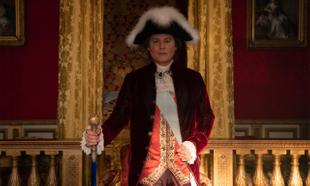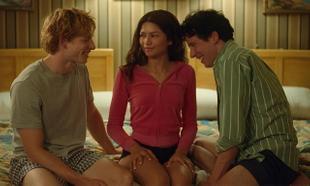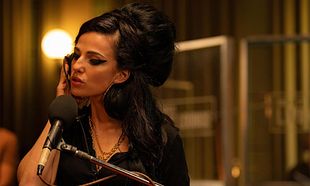Actor Gauthier Valence (Wilson) is famous for playing a surgeon on TV but he's got other ambitions – he's in Ile de Re to persuade reclusive actor Serge Tannaur (Luchini) to come out of his self-imposed retirement and star in his production of Moliere's The Misanthrope. Initially reluctant to take on such an immersive role and return to a world he despises, he is susceptible to his former colleague's flattery and concedes to at least rehearse a few scenes in his sleepy cottage.
Egos clash, however, when Gauthier and Serge fail to come to an agreement over who should play the play's protagonist, the titular malcontent Alceste, and who should play Philinte, a confidant concerned at his friend’s growing cynicism. As the opening date gets closer, Serge and Lambert’s relationship begins to mirror that of Alceste and Philinte’s.
It's about rhythm, Serge presses Gauthier when the latter insists on rushing through his words. To ignore a syllable, Serge reckons, is to render the entire sentence, and by extension play, pointless. Cadence looms large in Le Guay’s dialogue (Le Guay working from an original idea from Luchini) and without it Bicycling With Moliere would fall apart, as Luchini and Wilson’s performances wouldn’t tick.
The carefully nuanced turns from Luchini (who already starred in the 2007 light-hearted biopic of Moliere) and Wilson, expertly throwing Le Guay’s lines back and forth during what is essentially a series of conversations, are what the film is built on. They swap in the roles in the play, but also swap Alceste's persona outside rehearsals too: Serge is proud that he has a mobile phone whom no one has the number and is prepared to have a vasectomy so another 'mistake' won't happen, but Gauthier is as prickly too, getting irritated with the chattering taxi driver and frustrated with the dippy concierge. Watching the two knock about is fun.
But then it just goes off the boil. In trying to emulate the original play's determination not to cosy things up, something is lost. It stops being fun and the dialogue no longer keeps things bouncing; the shift in tone is so dramatic in fact it's as if Le Guay allowed another writer to write the third act. A Jacuzzi snafu scene feels like it’s from a different movie entirely, as is the vasectomy-hospital rethink. A romance with a local snappy Italian (Sansa) is underdeveloped.
Fun for the most part.









































































